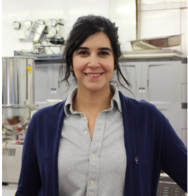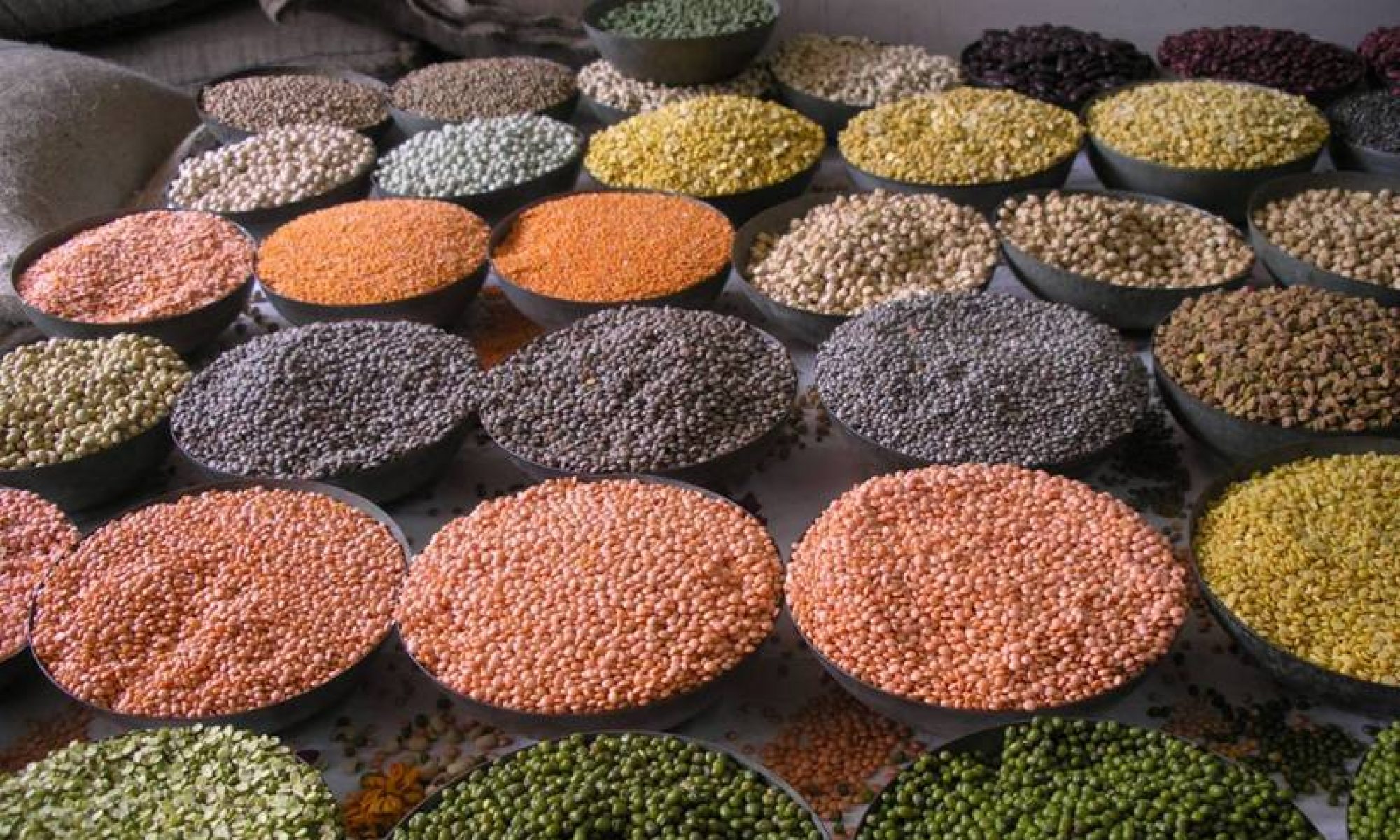Co-Applicants

Dr. Michael Nickerson received his B.Sc. (Honors; Marine Biology), M.Sc. (Food Chemistry) and Ph.D. (Food Chemistry) from Dalhousie University in Halifax, NS (Canada). Currently, he is a Saskatchewan Ministry of Agriculture Research Chair and Professor in the area of Protein Quality and Utilization within the Department of Food and Bioproduct Sciences at the University of Saskatchewan. His research area focuses on improving the use plant protein ingredients within the food industry. His program focuses on: improving the quality of plant protein feedstocks, dry/wet extraction technologies, protein modification, protein functionality and protein-based delivery systems. His program has led to 125+ internationally peer reviewed publications, and receives funding from Provincial, Federal and Industrial sources. Dr. Nickerson’s program focuses heavily on graduate student training to meet employment gaps within the protein ingredient sector.

Dr. James House is Professor and Head (since 2009) of the Department of Food and Human Nutritional Sciences, University of Manitoba. He completed his Ph.D. in amino acid nutrition and metabolism from the University of Guelph in 1996. From 1996-98, Jim worked as a post-doctoral fellow in the Department of Biochemistry at Memorial University of Newfoundland, where he was the recipient of a Medical Research Council of Canada Fellowship in 1998. In the fall of 1998, he joined the University of Manitoba. Jim has received the young investigator awards from Canadian Society of Animal Science (CSAS) and the Canadian Society for Nutritional Sciences. He has maintained research programs in 3 primary areas: 1) understanding factorsregulating sulphur amino acid metabolism in animals; 2) developing functional foods of animal origin, with particular emphasis on egg science; and 3) determining factors influencing the quality of dietary proteins. In 2018, Dr. House was elected as President for the Canadian Nutrition Society, and currently serves as Past-President. Additionally, he serves on the Canadian Advisory Council of ILSI North America, and serves on the Editorial Board of J AOAC International. His research program is funded via NSERC Discovery Grants, as well as numerous tripartite funding programs involving industry and government partners.

Dr. Lingyun Chen is Professor in the Dept. of Agricultural, Food and Nutritional Science at the University of Alberta and Canada Research Chair (Tier II) in plant protein. She received a PhD in Biopolymer Chemistry, Wuhan University, China Her research focuses on fundamental understanding of the molecular structure and functional properties of biopolymers with specific interesting in food proteins and polysaccharides from plant resources. This fundamental knowledge has led to a systematic approach to develop new protein and polysaccharide applications in food and non-food areas. Dr. Chen is internationally recognized for advancing the knowledge of plant protein structure-function relationships, and applying these to develop protein ingredients of improved nutritional, sensory and functional properties towards food, pharmaceutical and biomedical applications. She has > 120 refereed journal publications, 7 invited book chapters, >100 conference presentations and 2 pending patents.

Dr. Jill E. Hobbs is a Professor in the Department of Agricultural and Resource Economics at the University of Saskatchewan. She received a Ph.D. in Agricultrual Economics from the University of Aberdeen. Her research focuses on consumer behaviour, supply chain economics, and food policy. Her work has examined consumer trust and attitudes towards novel food technologies, public and private standards for food safety and food quality, the regulation of health foods in Canada and internationally, and the changing nature of agri-food supply chains. Dr. Hobbs was co-editor of the Canadian Journal of Agricultural Economics from 2013-16 and has served as President of the Canadian Agricultural Economics Society. She is a Fellow of Food Policy in the Institute for the Advanced Study of Food and Agricultural Policy at the University of Guelph, Canada and holds an Honorary Chair in the Aberystwyth Business School, Aberystwyth University, UK. She was made a Fellow of the Canadian Agricultural Economics Society in 2017.

Dr. Rotimi Aluko, a Certified Food Scientist and Professor within the Department of Food and Human Nutritional Sciences at the University of Manitoba, Winnipeg, Canada. He currently serves as the Director of the Richardson Centre for Functional Foods and Nutraceuticals, Winnipeg. He obtained a PhD (Food Science) degree in 1996 from the University of Guelph, Ontario, Canada. His work focuses on the structure-function properties of bioactive proteins and peptides with special focus on oilseeds and pulses. In addition to over 190 journal article publications, Dr. Aluko holds two patents on the antihypertensive properties of plant seed protein-derived peptides. Dr. Aluko has trained over 80 people in various areas of food chemistry and human nutrition. He is a 2017 & 2018 “Highly Cited Researcher” in the Agricultural Sciences category, which is recognition given to researchers with peer-reviewed journal citations in the top 1% in the world. Dr. Aluko is a Fellow of the Canadian Institute of Food Science & Technology, the Institute of Food Technologists and the American Oil Chemists’ Society. He currently serves as the Editor-in-Chief for the Journal of Food Biochemistry and an Associate Editor for Current Topics in Nutraceutical Research.

Dr. Filiz Koksel is an Assistant Professor in Food Processing within the Department of Food and Human Nutritional Sciences at the University of Manitoba. She specializes in processing of foods and food ingredients, especially those from cereals and pulses. Her research expertise includes improvement and utilization of novel techniques (e.g., X-ray microtomography, low-intensity ultrasound) to understand the mechanical properties of foods and food microstructure, heat and mass transfer operations during food processing (e.g., mixing, extrusion, baking, fermentation), physical and techno-functional properties of plant-based food ingredients. She also works towards processing of nutritionally-dense texturized plant proteins, meat extender and meat alternative products.

Dr. Takuji Tanaka is an Associate Professor within the Department of Food and Bioproduct Sciences, University of Saskatchewan. He received a Ph.D. from the Kyoto University, Japan His research fields are mainly in enzymology and extend from structure-function relationships of enzyme using X-ray crystallography to utilization of enzymes in value-added applications. Recently he expands his research program to the utilization of fermentation, especially modification of proteins through fermentation and combinations of fermentation and insect culture to generate novel sources of food and feed materials.

Dr. Marleny D.A. Saldaña has worked at different TOP research centers and universities in Japan at Tohoku University in the Research Center of Supercritical Fluid Technology, in Germany at Technical University of Hamburg-Harburg, in The Netherlands at Delft University of Technology. Currently, she is an Associate Professor in Food/Bio-engineering processing within the Department of Agricultural, Food and Nutritional Sciences at the University of Alberta. Dr. Saldaña is internationally recognized for her work on emerging processing technologies, including sub/super-critical water and carbon dioxide processing and high pressure processing to treat food, biomass and agricultural residues to obtain high-value bioactive compounds, biopolymers and chemicals for use in nutraceutical, functional food and industrial applications. Dr. Saldaña has contributed to the understanding of process parameters, solute-solvent interactions, bioactive separation, reaction, and optimization to develop bioactive films, hydrogels, and nanoparticles. She has investigated processes, involving carbohydrates, lipids and proteins. Dr. Saldaña has over 125 publications in peer-reviewed journals, book chapters and conference proceedings.
Collaborators

Dr. M. S. Roopesh is an Assistant Professor of Food Safety & Sustainability Engineering at University of Alberta. He received his PhD and postdoctoral research training in Biological and Agricultural Engineering (Food Engineering) from Washington State University, USA. He joined University of Alberta in January 2016. His current research at University of Alberta focuses on the application of novel thermal and non-thermal processing technologies, including atmospheric cold plasma technologies and high intensity pulsed light emitting diode (LED) to improve food and water quality and safety. Please check his website (https://foodsafetyengineering.ualberta.ca/) for more details regarding his research.

Dr. Carla Prado (PhD, Registered Dietitian) is an Associate Professor at the University of Alberta, and a Campus Alberta Innovates (CAIP) Chair in Nutrition, Food and Health. She is also the Director of the Human Nutrition Research Unit, the best facility in Canada for the assessment of body composition and energy metabolism. Dr. Prado is an expert in assessing nutritional status through the precise measurement of body composition and energy metabolism. The focus of her current research program is to develop targeted nutrition interventions for the prevention and treatment of low muscle mass in cancer, particularly focusing on protein intake. Dr. Prado received her Ph.D. from the University of Alberta, Canada, and has completed further training at the Cross Cancer Institute (Canada), the National Institutes of Health (USA) and Newcastle University (UK). She is an Associate Editor of two top Journals in her field: Clinical Nutrition and the Journal of Cachexia, Sarcopenia and Muscle. Dr. Prado is a recipient of Canada’s Top 40 Under 40, an award that celebrates exceptional young Canadian leaders.

Dr. Janitha Wanasundara (PhD, CFS) is a senior research scientist in Agriculture and Agri-Food Canada, Saskatoon Research and Development Centre. Dr. Wanasundara’s expertise is in food protein chemistry. The focus of her research program is on oilseeds and pulses of Canadian agriculture, to enhance economic value by efficient and effective utilization of their seed proteins. Her research investigates biological, chemical and physical properties of seed protein polymers and associated compounds and utilizing that knowledge to develop new uses, recovery and conversion processes for enhanced utilization. As an Adjunct Professor within the Department of Food and Bioproduct Sciences, University of Saskatchewan, she engages in graduate student training and supervision in the area of expertise. She also serves as an associate editor for Journal of American Oil Chemists Society and an editorial board member of Journal of Food Biochemistry.

Dr. Zhenyu Wu holds Ph.D. in Management degree (Specialization in Finance), MBA (Finance), and M.A. (Economics) from the University of Calgary. He is a tenured Professor of Entrepreneurship and Finance, and holds the position of Canada Research Chair (Tier II) in Entrepreneurship and Innovation. He also serves as Associate Dean Research and Graduate Research Programs at I.H. Asper School of Business, University of Manitoba. Dr. Wu supervises Ph.D. and M.Sc. students in both Department of Business Administration and Department of Accounting and Finance. Dr. Wu is a member on the Editorial/Review Boards of Entrepreneurship Theory and Practice and Family Business Review, and he is also an Associate/Subject Editor for Emerging Markets Review, European Journal of Finance, and Journal of International Financial Markets, Institutions and Money. His research interests fall into the areas of entrepreneurship, entrepreneurial finance, corporate governance, and family business management.

Dr. Wendy Wismer is an Associated Professor within the Department of Agricultural, Food & Nutritional Science at the University of Alberta. She is an accredited food scientist (CFS) with expertise and experience in sensory and consumer science. She has performed a variety of sensory and consumer science projects for both academia and the food industry focused primarily on food product acceptance. In past research, Dr. Wismer has explored consumer perceptions, including taste preferences and perceived qualities, comparing organic and conventional foods, regular and sodium-reduced products, and exotic alternatives to traditional red meats. The research techniques used by in her group have evolved to include recent sensory science methods such as taste assessments over time (TDS, TCATA) and novel consumer descriptive methods that generate product profiles linked to product liking.

Dr. Nancy Ames is a Senior Research Scientist with over 30 years of dedicated service to Agriculture and Agri-Food Canada (AAFC) working towards improving Canada’s agri-food sector. She collaborates with breeders, producers and the agri-food industry to develop improved cultivars and food processing techniques that maximize the quality, health properties and overall utilization potential of Canadian grains and pulses. As a recognized authority on cereal grain nutrition and quality, Dr. Ames is a scientific advisor to the Healthy Grains Institute and the Quaker Centre for Excellence and was awarded the American Association of Cereal Chemists International Edith Christensen Award in 2015. In 2018 she earned AAFC’s Prize for Outstanding Achievement in Science in recognition of her efforts to substantiate and promote the health benefits of Canadian barley, which led to a Health Canada approved therapeutic health claim for barley in 2012. In addition to her scientific achievements, Dr. Ames has shown leadership in mentoring of graduate students through Adjunct Professorship at the University of Manitoba as well as high-school students participating in the Verna Kirkness Science and Engineering Education Program. Dr. Ames continues to apply her knowledge of science to new areas and recently took on the roles of Chair of AAFC’s Human Research Ethics Committee and Co-Chair of the Women in Science Committee.

Dr. Phyllis Shand has been a Professor of food and meat science in the Department of Food and Bioproduct Sciences at the University of Saskatchewan since 1997. Her undergraduate studies were at the University of Manitoba followed by a Master of Science from the University of Alberta, and a Ph.D. in Meat Science from Colorado State University. Dr. Shand’s research interests are in the areas of meat protein functionality and gelation, meat quality and tenderness and ingredient interactions in processed meats. Her current research focuses on: 1) antioxidant properties of pulses flours and fractions 2) functionality of pulse ingredients in meat processing, 3) reducing fat content and changing fatty acid profiles in processed meats and 4) development of hybrid meat and pulse dried meat snacks. She has been a supervisor or co-supervisor of 22 graduate students (7 Ph.D. and 15 M.Sc. students) and currently has 2 M.Sc. students and 1 Ph.D. student. Phyllis has been active in outreach and extension to the food industry through her participation in short-courses, trouble-shooting and product development. She is the former chair of the Canadian Expert Committee on Meat and Meat Products. Currently, she serves on the board of directors of the Saskatchewan Food Industry Development Centre.

Dr. Ning Wang is a Research Scientist and Program Manager for the Pulse Research Program at Grain Research Laboratory of the Canadian Grain Commission. Dr. Wang’s research is primarily focused on investigating factors that contribute to the overall quality of pulses, which include studying the relationships among chemical components, functionality and end-use characteristics of pulses. In addition, Dr. Wang is involved in research new uses and processes for Canadian pulses and factors affecting the end product quality. Dr. Wang is also involved in research methods to assess pulse quality and functionality. Prior to joining the CGC, Dr. Wang worked as a professional research associate at the University of Saskatchewan where he was involved in a variety of research projects including chemical composition and functionality, processing and product development, fractionation and separation of pulses into components (protein, starch and fiber), and utilization of pulses. Dr. Wang received his Ph.D. degree in food science and technology from University of Reading in the UK.

Dr. Jitendra Paliwal received a Ph.D. in Biosystems Engineering from the University of Manitoba in 2002. He is now a Professor of Biosystems Engineering at the University of Manitoba where he leads the imaging and spectroscopy research in the grain storage area. His work in mitigating grain spoilage through innovative storage techniques is internationally recognized. Jitendra’s research on developing hardware and software solutions is widely referred to by the designers of grain quality monitoring and assessment instruments. In 2018, he was part of a distinguished team of industry and academic researchers, who won the American Society of Agricultural and Biological Engineering’s AE50 award for adapting a cancer detection imaging technique for remote monitoring grain bins. Jitendra’s highly collaborative interdisciplinary research work, so far, has resulted in over 75 scientific papers in international peer-reviewed journals. He has also authored or co-authored 80 conference papers and five book chapters. He is routinely invited at national and international events to talk about the current scientific advancements in the area of post-harvest storage of grain.

Dr. Supratim Ghosh is an Associate Professor in the Collage of Agriculture and Bioresources at the University of Saskatchewan. He received a PhD in Food Science from Pennsylvania State University in 2007 and conducted post-doctoral research at Ryerson University, Toronto. His expertise is in emulsion and colloid science, rheology, and structure-functional analysis. He has been working on utilization of plant-based ingredients such as pulse proteins in food and beverage applications for the replacement of synthetic ingredients and animal proteins and in the development of novel food structure such as oleogels and emulsion gels for the replacement of animal fat and saturated and trans fats from meat and confectionary applications.

Dr. Darren Korber is a Professor at the Unviersity of Saskatchewan and Department Head for the Dept of Food and Bioproduct Sciences. Dr. Korber has a multi-faceted research program which strives to advance understanding and control of microbial behavior in various engineered-, industrial-, and natural-bioprocesses. Specific research areas include: 1) elucidating molecular pathways of resistance in planktonic and biofilm bacteria exposed to antimicrobial agents and environmental stressors, 2) applying fermentation to improve the functionality and nutrition of pulse proteins, 3) characterizing the diversity and antibiotic resistance profiles of microbial communities associated with high-production animal systems, 4) monitoring the effects of industrial and agricultural effluents on river biofilm communities, 5) developing plant-based microcapsules for improving the survival and delivery of human and animal probiotic bacteria, and 6) employing metatranscriptomics to identify plant growth promotion and sulfur oxidation pathways in commercial bacterial inoculants. To conduct this work, Dr. Korber uses a suite of conventional and cutting edge approaches, including high-resolution digital imaging tools (i.e., confocal laser microscopy, scanning transmission X-ray microscopy (STXM))and various molecular biology techniques (PCR, q-PRC, proteomic, genomic/transcriptomic high throughput sequencing, and bioinformatics).
